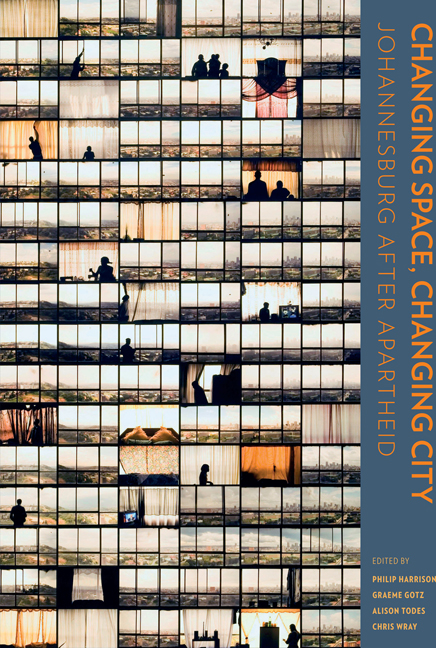Book contents
1 - Materialities, subjectivities and spatial transformation in Johannesburg
Published online by Cambridge University Press: 20 April 2018
Summary
Johannesburg and the city-region
This volume is an exploration of the extraordinary spatial changes in the city of Johannesburg in the period after the ending of apartheid. It builds upon an already flourishing literature on Johannesburg, offering as its principal contribution a balanced perspective that connects systematic, empirically grounded analyses of material trends with readings of the city's ‘subjectivities’ – the character of its fast-mutating neighbourhoods and the identities being forged in its diversity of places.
The volume focuses primarily on the area governed by the City of Johannesburg Metropolitan Municipality, and uses data that are largely delineated by the municipal boundary. The analysis is, however, not rigidly restricted to the arbitrary edge of the city's administrative boundaries. Where appropriate, it extends to near-Johannesburg areas along what has historically been known as the Witwatersrand, the stretch of urban settlements along the old gold-mining belt. More importantly, the volume explicitly situates the development of Johannesburg within the changes under way across the broader metropolitan region of which it is a part, now commonly known as the Gauteng city-region.
The wider city-region also includes the Metropolitan Municipality of Tshwane, anchored on Pretoria, which has historically been the centre of government in South Africa, and a string of smaller cities and towns around Johannesburg which form an arc of mining and industrial activity. While this volume directs its major focus to Johannesburg, it does also emphasise the relationship of this city to these other areas, and the writing of the volume is being supplemented by work under way on the other components of the city-region. Plates 1 and 2 provide a spatial context for many of the places and cities mentioned in this volume.
Why Johannesburg?
A focus on Johannesburg is arguably important for at least two reasons. First, Johannesburg is the dynamo within the national economy and has a commanding position in the national social imagination for this reason. Scholarly attention to this city will, hopefully, inform policy development that is responsive to this reality.
For Johannesburg, the spatial changes under way have much to do with the city's primacy in the national space economy. It is a city with a vibrant private sector that is driving spatial development in a complex relationship with the regulatory frameworks and spatial policies of government. Tables 1.1 and 1.2 illustrate the significance of the city and city-region economy.
- Type
- Chapter
- Information
- Changing Space, Changing CityJohannesburg after apartheid, pp. 2 - 39Publisher: Wits University PressPrint publication year: 2014

